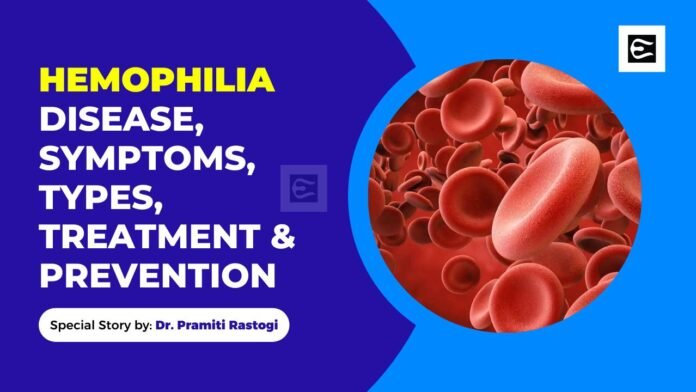
Definition
Hemophilia is a bleeding disorder due to decreased activity or deficiency of the factors that cause clotting in body.
It is a hereditary disorder which affects the male population and females are carriers. It is also known as the Disease of the Kings since Queen Victoria I of England was it’s carrier.
Symptoms
Some of the symptoms of hemophilia include :
Excessive bleeding from the cuts and injuries; large and deep bruises; bleeding in joints; bleeding gums; blood in urine, stool, nosebleeds; internal bleeding in abdomen; bleeding inside skull; late Re-bleeding after surgery or tooth extraction.
Depending upon the severity of symptoms, it can be categorised as Mild, Moderate, and Severe.
Types of hemophilia
There are 3 major types of hemophilia ; First being the classical one due to deficiency of factor VIII, Next being the Christmas disease for Factor IX deficiency, the third one being the Rosenthal syndrome due to deficiency of factor XII.
Although hemophilia is a congenital ( present since birth ) disease, there are rare chances of it being acquired. This occurs due to autoimmunity when the body’s immune system mistakenly starts attacking healthy cells and tissues in body.
Treatment
The treatment of hemophilia consists of providing the plasma concentrated form of deficient Factor or the recombinant for the same factor. In classical hemophilia, antibodies like Emicizumab can be given.
Prevention
Since the disease is genetic, therefore is not preventable. But there are measures that can protect from excessive bleeding. Thease measures include regular exercise to strengthen and keep the muscles and joints in shape; avoiding pain medications like aspirin and blood thinning medications; protecting from injury, etc.
Thus, hemophilia disease is genetic, unpreventable but few measures and treatment can surely make life better.
- Special Story by Dr. Pramiti Rastogi

